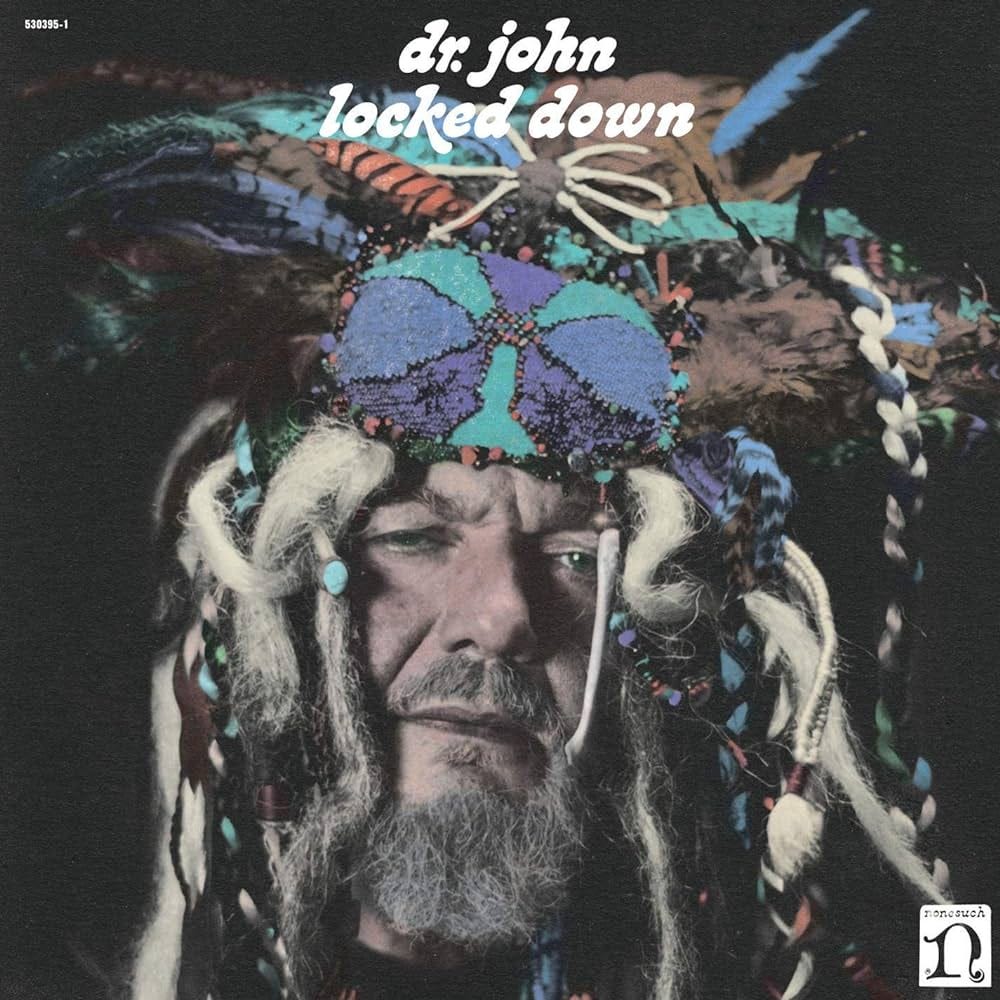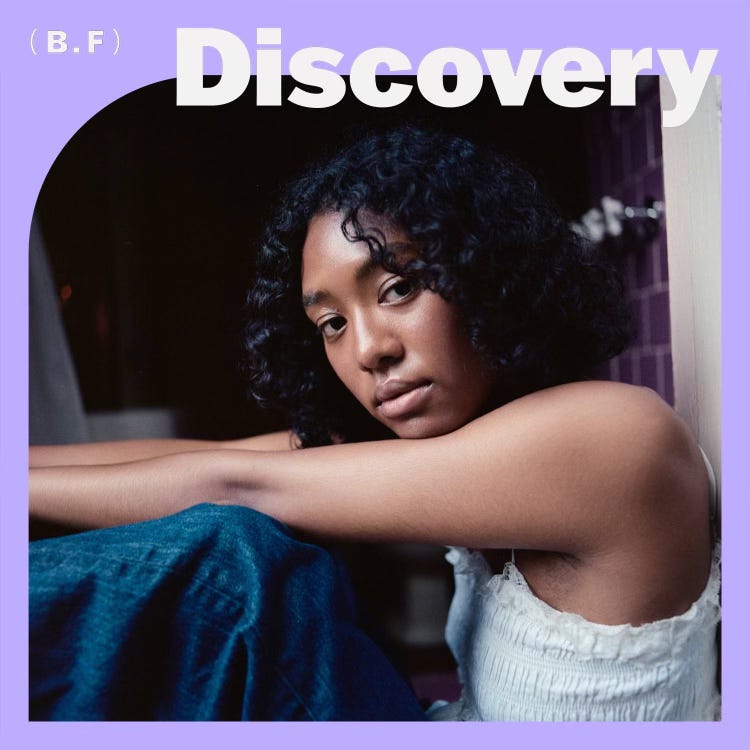The Friday Dispatch
Briston Maroney, ØXN, Liz Phair, Dr. John, and Parchman Prison Praye
How Briston Maroney learned to face his demons
For Briston Maroney, the creation of his sophomore album was a lesson in letting go — whether that meant releasing the stories and experiences he had so far or shrugging off the external pressures that come with being an artist. He spent a decade working towards his debut record, the acclaimed indie-tinged Sunflower, which resulted in excavating his own stories and attempting to make sense of them.
Now, at 25, he’s reckoning with a few things. He squashed the fear he initially had with Sunflower, which is that he was “paralysed” with anxiety thinking that he would never write another song after his debut. Instead, that fear turned into self-reflection that would require him to open a lot of doors and peek his head in. “I’ve been lucky enough to be an artist that gets to make more than one record,” he explains. “Getting to make a second record meant that I could reflect on how the expectations I put on myself actually affected the outcome. I put so much energy into making sure so many people were pleased with the record before. I had all these expectations of trying to meet their expectations. This time, though, I'm very thankful to have the perspective of [making a record] and knowing what it’s like to put that energy into the songs. I didn't really know what I wanted to do this time, but I knew I wanted to try putting energy towards a different set of expectations.”
For Maroney, the moments that are ‘ultrapure’ aren’t inherently good or positive. Instead, he associates the word with feeling a myriad of things. Sometimes it’s the anxiety that comes from uncertainty or pains from his childhood. Other times it’s like he’s stepping into the sun and explaining to all exactly what it feels like. At its core, his new record Ultrapure is about addressing the things that were either hard to make peace with or too difficult to properly define in a song before this very moment.
“I’ve been less concerned with the external perception of who I am supposed to be with this album,” Maroney states. “I've just really tried to make the process of making a record be a completely personal and rewarding thing first before it's something that's intended to be shared with other people. It was important to me to turn off a little bit of the radio static noise that comes from the outside world.”
Part of turning off that noise meant that the songwriting process was starkly different between the two records. At the time, writing Sunflower felt cathartic to Maroney. It would take working on Ultrapure for him to realise that there were other layers to himself that would make him feel more exposed than ever — a new level of catharsis. After years of stress and pressure to make sure the songs on Sunflower could be commercially successful enough, Maroney found writing songs for Ultrapure a much more personal process. Instead of writing a song as a means to an end, there was no immediate intention behind anything. That mindset would, eventually, lead him to have a cohesive collection of songs all stemming from the same place.
Ultrapure is a lesson in relationships. Maroney excavates the meanings and reasons behind why he’s built certain ideas of what a friendship, partnership, or familial relationship looks like. For someone who is admittedly sensitive, the process meant that Maroney had to question and learn a lot about who he was and how those ideas and concepts shaped certain parts of his life.
ØXN are on the rise
Forming from the sparks of a one-off collaboration, Irish collective ØXN are developing their own folklore. “It’s not a joke, but tongue in cheek is definitely the right way to put it,” laughs Radie Peat from a small rehearsal room across a grainy Zoom call. “It’s so dramatic. A lot of the time after we would come up with something and decide, ‘are we gonna make it this dramatic?,’ we’d roll around laughing.”
Releasing their debut record CYRM next Friday through the iconic Irish label Claddagh Records, it’s a dark, pronounced and volatile ride through expansive touchstones of doom folk. “I’m such a big fan of classic horror movie soundtracks and things like that,” continues Katie Kim. “There’s no better time to try and do it when everyone has time off during a global pandemic and trying to get a bit apocalyptic on it.”
Irish quartet ØXN’s formation and lineage is a tricky tale to navigate. Peat is best known for her role in acclaimed folk group Lankum, while Kim has an esteemed solo career. The two were paired together to participate in the 2018 edition of Dublin’s MusicTown series. “I was extremely obsessed with Katie’s music and terrified of her,” laughs Peat. “It all came together really easy because as you may have just seen a glimpse of, we are around each other a lot and from very similar musical realms.”
Across the CYRM, the group pull on traditional tales and centre their imagery and narratives from the perspective of women. Often unjust, persecuted or oppressed, their lore matches with the sparse and unnerving hauntings of tracks like album opener “Cruel Mother”. A ten minute lament with its roots in traditional folk performance, the video features an emotive and arresting turn by Irish actor Olwen Fouéré.
Some tracks like chaotic and menacing recent single “Love Henry” take root in traditional folklore, while others are prudently selected cover versions of songs that ØXN felt fit the narrative of their project. “Our ‘Love Henry’ is from the same general song as the traditional ‘Henry Lee’, but it’s a lesser known offshoot. I got our version from a singer called Judy Henska. We did adapt it and we did change things, but it’s very heavily based on her version,” Peat explains. “It’s weird to say, but I’m very interested in murder ballads so I’ve looked into them a lot and this is the only version I’ve ever found where it’s a woman murdering a man and not the other way around.”
On CYRM, ØXN emphasise not only their own gripping take on all that came before, but they synthesise it with 21st century collaboration and aesthetics to create something that’s both ghostly and confronting, repositioning stories and moving them forwards in time.
Liz Phair’s personal best
There’s never been a debut album quite like Exile in Guyville, Liz Phair’s frank and playful soundtrack to blowing up her girl-next-door image to free the complex, messy young woman beneath. Revealing an inner life of loneliness, lust, and simmering resentment, to name just a few of Guyville’s web of agitations, it propelled the 26-year-old art history graduate to unexpected fame on its release in 1993. Magazine covers and MTV ubiquity followed, and Phair seemed set to break through to the big time. Landing a distribution deal with Atlantic Records, her second album Whip-Smart was meant to seal the deal. But Phair blew that up too, having realised that the music she loved making had become a job she hated. “I had the lowest self-esteem I’ve ever had in my life,” she later told Spin. “I felt hunted. It was icky.”
Phair’s vacillating feelings about Guyville and its baggage have softened in recent years, and she says that’s largely thanks to her fans, “the people who kept it alive throughout the years, even when I had rejected it.” To mark 30 years since its release, there’s a new vinyl pressing on the way plus an extensive US tour during which she’ll play the album in its entirety – all 18 glorious songs. “My relationship with Guyville feels really beautiful right now,” she says, explaining why such a tour feels right for now. “It feels like enough water has flown under the bridge, and we’re all just happy that there’s a bridge there at all.”
“The 30th anniversary reissue and tour feels perfectly timed for me,” she adds. “There’s something really poignant about it. It will be the last time I perform the album in full, so there’s a part of me that’s going to be out on stage knowing that but also revelling in the fact that I’m connecting with this album again. It’s also a way of being able to saying thank you to all the fans. It’s because of them that Guyville came back.”
If fans are to experience the full Guyville again after the year is out, it seems likely to be as part of some as-yet-undefined stage production. Phair says that she’s been giving the idea of creating some sort of musical based on the record, “with lyrics from other songs to fill in the story.” “When I think of Guyville going forward, I think it’d be really cool just to let it be encapsulated in that kind of production,” she says. “I’d like to have to someone else play me. I won’t play that version [of Liz Phair] anymore.”
There’s a lot more from this one-of-a-kind artist to look forward to, then, but first let’s take a breath and dig into some of her own personal highlights of the past 30 years:
Seizing the opportunity to talk about rare and lesser lauded songs from her canon, Phair says that making this list came surprisingly easy: “I tried to pick ones that haven’t got a lot of attention and that I think are either indicative of a peculiarity of my songwriting, or that were impactful in my career. Songs that people might not know but were actually pivotal for me.”
Three things to get excited about this week
The tour: Chappell Roan, the Midwest Princess, is plotting a pop takeover, and if you haven’t hopped on the bandwagon yet, you should. Touring her debut album across the US, Roan has put together a live show that’s enigmatic, eccentric, and engaging. Every night has a theme, and every song has more heart than the last. Notably, Roan also isn’t afraid to call out the boyfriends in the crowd who refuse to sing along. At each stop, in place of an opener she’s recruited local drag queens to warm up the crowd and prompts audience members to donate. After all, her own stage persona is the drag version of herself — the singer was born Kayleigh Rose Amstutz — and a large portion of her record The Rise Fall of a Midwest Princess is a celebration of queer community and discovery. Though Roan is a cult-status icon now, she likely won’t remain that way for long.
The machine: If you wish you could get your hands on this, you’re not alone. Unveiled earlier this year, the Polyend Tracker Mini is a standalone hardware tracker that allows you to sample, sequence, and make fully-produced beats on the go. Though this new product is technically a mini version of the original Polyend Tracker, the Tracker Mini actually is home to more features and a variety of software updates. The idea is that you can take the Tracker Mini with you anywhere you go, and whole albums have already been made with the device.
The documentary: If you’re in need of a nostalgia hit this week, try D. A. Pennebaker’s 1968 film Monterey Pop. Chronicling the 1967 Monterey International Pop Festival, the film has original footage of some of the most iconic performances in music history. Within a 90 minute period, you’ll be treated to original footage of Janis Joplin’s “Ball and Chain” belt, Jimmy Hendrix’s American debut, and more. But perhaps more interestingly, Pennebaker uses the principles of direct cinema to give viewers an unvarnished look of the counterculture brewing right on festival grounds. Monterey Pop is the essence of cinematic vibrancy, capturing earnestly the moment in time that was the Summer of Love. Revisiting the film brings the movement, its makers, and its music to life once again.
Something Old, Something New
Every week, one of our writers or editors share their recommendations of two records they love - one from the past, one from the present. This week, Ross Horton on Dr. John’s Locked Down (2012) and Parchman Prison Prayer’s Some Mississippi Sunday Morning (2023).
Between 1968 and 1974, Dr. John, the Night Tripper, made a series of truly remarkable albums. The first of that run seemingly appeared out of thin air - or was that a plume of green smoke? - and the last found him having taken his raunchy N’Awlinz voodoo funk as far as it could go.
By the turn of the century, his once-golden career had been relegated to the lower leagues of schmaltzy standards and recycled former glories. Still good, but not great.
After a superb comeback in 2010, he truly knocked it out of the park (with a little help from Dan Auerbach) on 2012’s spooky, groovy masterpiece, Locked Down.
Across its ten ripe, juicy tunes, the album plays with the good Dr.’s full arsenal of swampy rock burners and smoky blues groovers. The title track, “Ice Age” and “Kingdom of Izzness” are superb, but the truest highlight is “Big Shot” - just about as good a tune as he ever delivered in his storied career. He’s sorely missed.
Described as “haunting in situ recordings from Parchman Farm Maximum Security Prison in Mississippi (USA)”, Some Mississippi Sunday Morning (2023) is an overwhelming collection of songs delivered in various forms - solo a capella all the way to riotous full-band performances. The brainchild of Ian Brennan (who’s worked with Tinariwen and Ramblin’ Jack Elliott amongst others), the album delivers a truly unforgettable experience - peaking on the euphoric, ecstatic closer “Lay My Burden Down.”
Listen to the week in new music by following our Discovery playlist
Dropping at midnight every Thursday, follow our 20-track playlist for a taste of the best new music from the most exciting breaking artists.
These are the songs our editors and writers have on repeat right now, taken from the hundreds of tracks released in the last seven days. Leading the selection this week are cuts from HONESTY, Frost Children, Human Interest, niina, Sarah Meth, and coverstar Kaleah Lee.









